 R.D. is back today to talk about a new ADA policy at Six Flags parks that, to put it lightly, doesn't make a whole lot of sense. You can find the new ADA guidelines for the parks here. Written by RD Sussman Before I start, I want to go into some depth onto why the A.D.A. (Americans with Disabilities Act) is important to me - and why it is now being abused badly. The A.D.A. was created to finally fix a lot of the access problems that had been left behind via a lack of thought for the most part. All buildings of note had to be equipped to handle people with access issues (wheelchairs, visual impairments, mobility issues). The A.D.A. also improved access to transport, and just about any major project since 1994 has been impacted by these laws. And in 90% of the cases, you probably don't even notice these things, outside of the lifts installed in older buildings or ramps for chair access. At the same time, a can of worms was opened up. Theme parks around the USA had to adapt to these new rules & regulations - by adding bathrooms & other functional features to allow handicapped access to all places. Many parks which were older grandfathered in rides & attractions as needed, but in many cases this meant major changes to how handicapped guests were handled. Where applicable, access to rides & attractions became a sore subject as ride passes were enacted that allowed handicapped guests to bypass the general wait in line. In 1998, the A.D.A. was altered to include a wider range of handicaps, including mental faculty issues and a whole raft of new potential issues. Parks had to again comply by these policies, which is where the A.D.A. becomes an all-access pass to a nightmare parks are now subject to. Just about anybody could now get an A.D.A pass at a park - for everything from PTSD to full paralysis. Parks were now handing out passes to bypass the lines left and right. How bad did it get? In some cases, the A.D.A. access lines would be 3x longer than the general queues. On one trip to Disneyland in 2012, the wait for access to Space Mountain extended to nearly THREE HOURS. And in line there were nearly no guests with visible impairments to mobility. Disney was handing out their access cards to anybody who blinked. It was shorter for me to go in the standby line than it was to use the accessible rockets themselves. And it wasn't just Disney suffering: All parks found that these problems were cropping up all over. And in fear of being sued, they had to start handing out A.D.A. passes to anybody who asked for one. Six Flags had a system in place to start handling these, by issuing a return time for an attraction. Guests would bring their pass to the exit, a time would be issued, and you would return. No muss, no fuss, and guests would wait before riding. Very simple, very clean, very effective. Disney adopted a more advanced system which now uses the ticket itself as a way of tracking times for return to a ride. A sensible way of doing it, I used this recently at Disneyland and found it totally acceptible in every way. [As a side note: The only time I use A.D.A. access for a ride is if the line exceeds 45 minutes - or the attraction has stairs which I have a difficult time negotiating. Beyond that, I'm in line with everybody else when riding.] So now Six Flags has decided that people need a note from their doctor to use the A.D.A. access program. "Get a note from your doctor, or no A.D.A. pass." is basically how the letter stated things. Here is where I raise an issue - and a red flag warning, especially in light of my most recent trip to a Six Flags park. Using a doctor's note is a double-edged sword. First, it will cut back on the amount of people using the A.D.A. to line jump. That's all well and good, but for those of us who visit parks frequently, this gets to be a HUGE pain. Considering my own G.P. charges me every time I visit -whether for actual work or for a doctor's note, this becomes expensive. For some of us, we NEED to use the access points as we can't negotiate stairs easily - or for that matter, stand for long periods of time. Related to this was the way the passes were handled on a recent trip to Six Flags Magic Mountain. Whereas in the past I could get a return time for an attraction, this didn't apply anymore. Simply put: a time was assigned for the first ride I wanted to go on... and once I'd completed that ride, I'd have to wait 60 minutes before going on the next ride. Here's the rub: for the most part, the general access lines were less than 10 minutes wait for most of the attractions in the park. So now A.D.A. access users were being penalized heavily for having to use the ramps to get to a ride. Thankfully, I was able to get the rides I wanted with little wait due to the lack of crowds that night, but I can say I'm still a bit miffed over it. So what is the solution? Reasonably speaking, the request of a doctor's note by Six Flags will last until the first lawsuit happens - and it will happen. Guests who aren't aware of the policy (and there will be more than a few) will get to the park and be turned down for an A.D.A. pass. And those who most need it will be the ones getting burned the worst. So who does Six Flags new policy impact the most? Well, Q-bot sales for one: Since the policy on A.D.A. is irrelevant to Q-Bot sales, people will either choose to go find a doctor's note, or plunk down good money to bypass lines - at Six Flags profits. I don't know of a single handicapped person who carries a doctor's note with them to parks, as many do not visit parks often. So now they will be given the option: Fit through the main queue lines (which in a chair or on canes can be challenging at best) or pay Six Flags to be able to use the ramps/access points. And if they can't do stairs, they're out of luck: No ride for you. At parks with older rides or attractions that are elevated, this could eliminate nearly half the rides in the park easily. Disney's system is the most refined - and the most useful. By having a return time scanned in for an attraction, guests may bypass the line... but not the wait time. With some attractions having lines extended to 2 hours, bypassing the line means nothing here. People are less likely to use the A.D.A. system as they'll end up waiting just as long. Effective, simple & easy to do with little energy. And in the end, you find more people using their fast passes and standing in line, freeing up access for those who need it. The A.D.A. is needed at parks - no question - but Six Flags has made a mistake with their latest move to cut down on A.D.A. abuse. Further revision will happen sooner rather than later. The problems will still be there - but until parks revise policies better and adapt to more intelligent plans, they will not fully cope properly. Either way, Six Flags needs to re-think their entire strategy from the ground up, and ask the people who need it most how to work it: The truly handicapped. R.D. Update: We received the following update from Magic Mountain today who wanted to clarify the policy a bit regarding the need for a doctors note. Thanks to the park for reaching out. Six Flags offers an Attraction Access Pass (AAP) for guests with disabilities who might not otherwise be able to enjoy rides in our parks. Beginning November 7, 2015, due to growing abuse by others, guests who are unable to wait in ride lines due to a mobility-related disability or other disability within the meaning of the ADA, will need to provide a doctor’s note to receive an AAP. Our goal is to accommodate guests with disabilities while reducing the number of guests who abuse the policy. We apologize for any inconvenience this may cause certain guests and thank you for helping us meet our goal of creating a more enjoyable visit for each and every Six Flags guest. A doctor’s note will only be required for the first visit. We will make a notation in our system for all future visits. The doctor’s note must include the doctor’s name, address, phone number, medical license number and signature along with a statement indicating the guest has a disability or other qualifying impairment under the Americans with Disabilities Act (ADA) and/or applicable state law that prevents the guest from waiting in a standard queue. Please note that the nature of the disability should not be provided in the doctor’s note. If the disability is of temporary nature, the doctor’s note should state the time period of the temporary disability. Our new policy is in full compliance with both HIPPA and the ADA. We will not require guests to share the nature of their disability. We only require a signed doctor’s note indicating that the disability or other impairment prevents them from standing in a ride queue for extended periods of time. The safety and well-being of our guests and employees is our absolute highest priority. This policy was implemented to better serve guests with disabilities and other impairments and ensure they have equal access to our rides and attractions. Our goal is to provide a safe and enjoyable visit for all our guests while accommodating their wide variety of needs.
3 Comments
|
Archives
August 2022
|

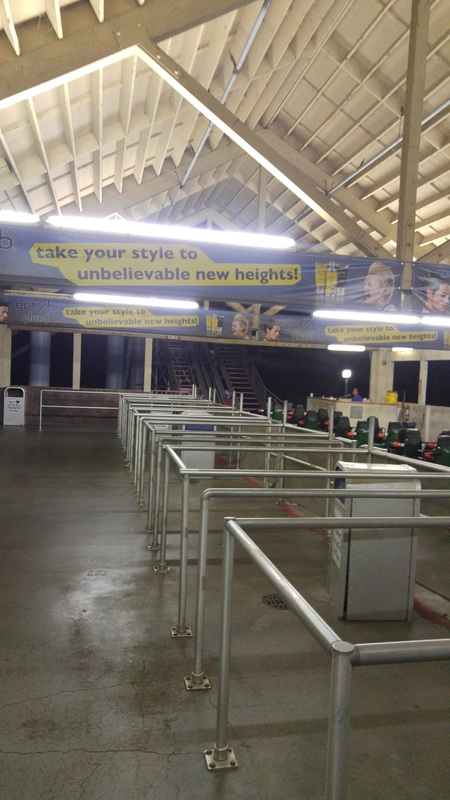
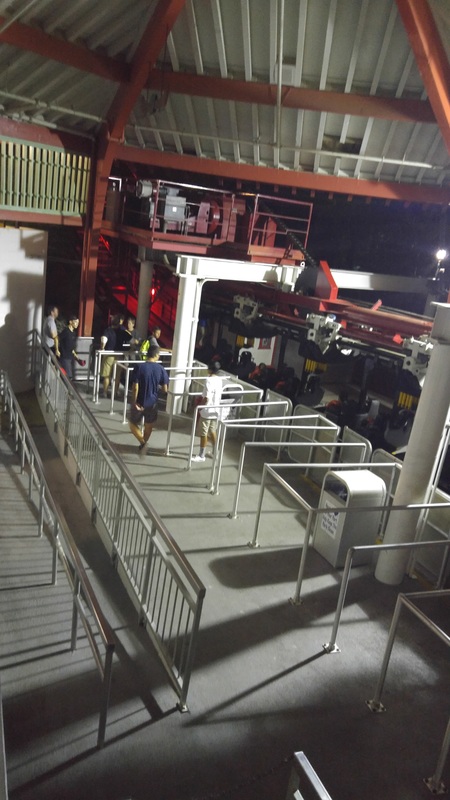
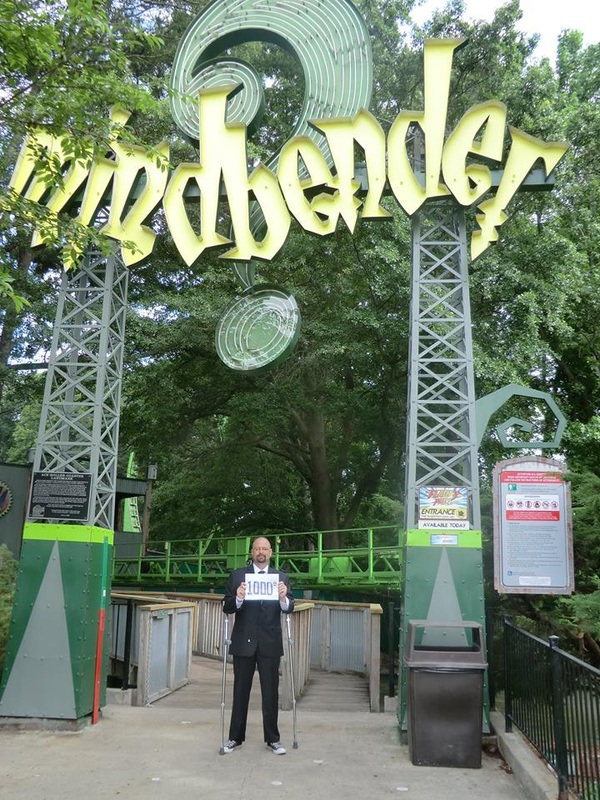
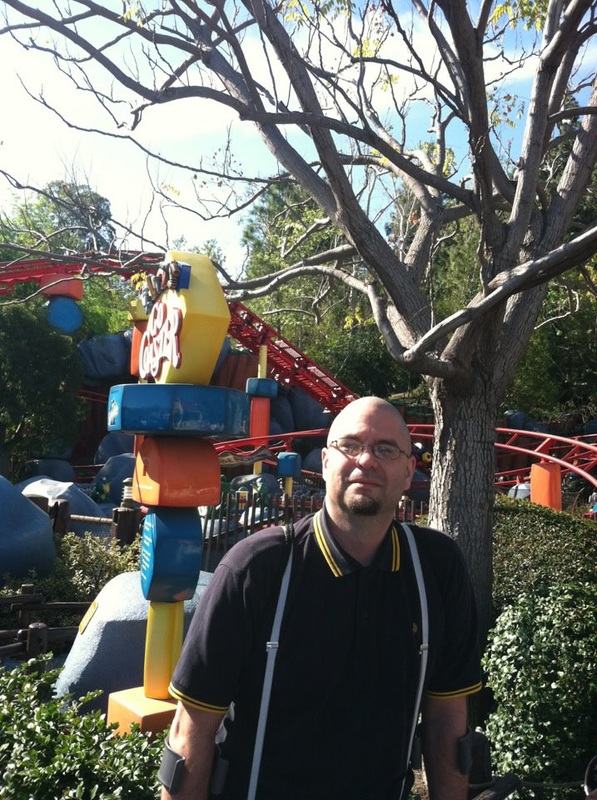
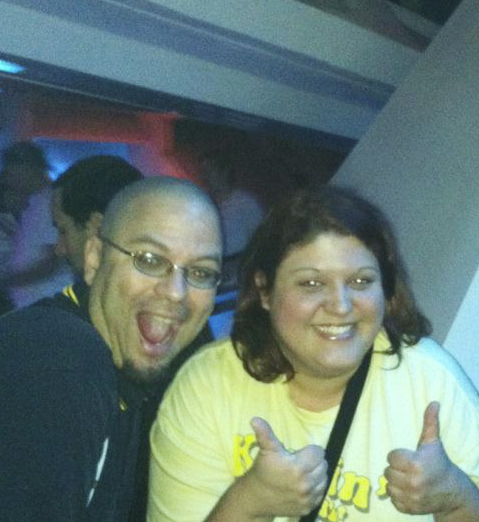



 RSS Feed
RSS Feed